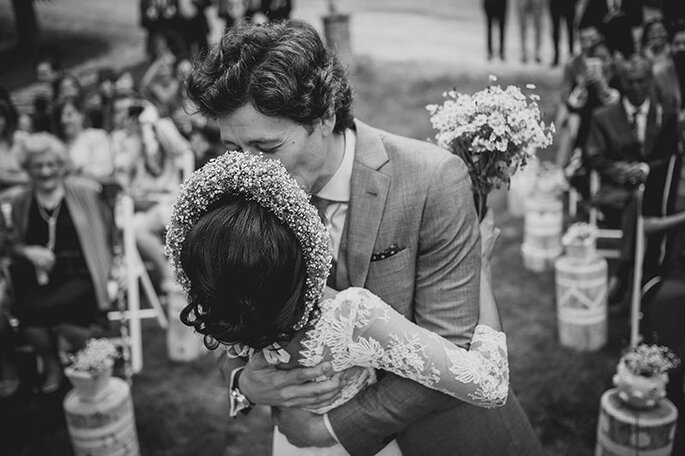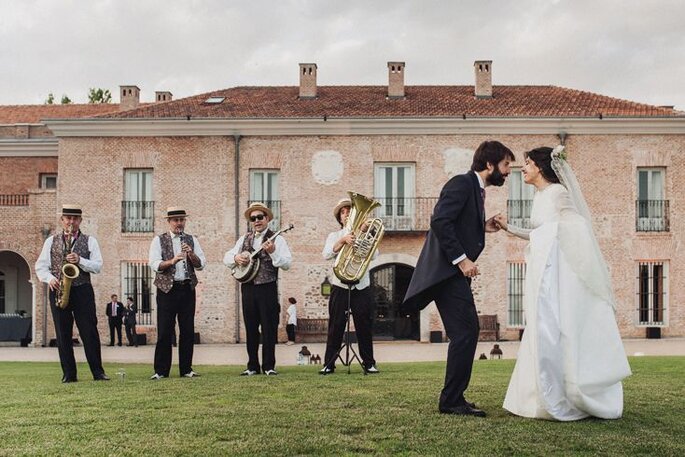After letting all of your nearest and dearest know your big news, the exciting planning process begins – although not before you decide on your budget for the big day. This will dictate the whole process, style and size of your wedding. On the whole, average wedding budgets vary from $30,000 to $40,000. So, keep this in mind and hire the appropriate services for your budget – in this case, it is always advisable to estimate high so that you can avoid last minute problems. When developing your list of necessary costs, establish an order of priority to differentiate between the “essential”, the “important” and the “secondary”. You should decide which items are the most important to you and will therefore be allocated the most of your budget. Here are 5 more simple steps to planning your budget…
- Step 1. Decide on the number of guests
- Step 2. Bride and Groom outfits
- Step 3. Think about services and providers
- Step 4. Leave some money for the extras
- Step 5. Include your honeymoon!
Step 1. Decide on the amount of guests
It’s important for the planning of every part of your big day. Your amount of guests will dictate the venue, catering and price of your wedding. The average number of guests for a wedding is around 150 people.
Catering
Your wedding breakfast will most likely account for roughly half of your wedding budget, and so it is important to know that the average price per head is $100, because from here you can decide whether you want to raise or reduce the price.
Other expenses
During the sit down meal, many guests also delight in table presents to keep as a special memory of your day, so the total number and price of these also depend on who you invite to your event.
The number of guests also determines the means of transport. Many weddings include vehicles to transport large groups, with all extra expenses involved, so you should also take this into account.
Another scare that occurs is VAT – make sure that you get quotes from service providers that are INCLUSIVE of VAT so that you don’t get any shock invoices that you hadn’t budgeted for.
Step 2. Bride and Groom outfits
Prices
The differences between the wedding dress and the Groom’s suit are very obvious. Firstly, the price for the Bride’s dream look can vary from anywhere between $1,000-$10,000, while the Groom’s tends to cost between $500 and $1,000. The bride’s wedding dress has always been highly important and involves a variety of processes, such as fitting and tailoring, as well as the layering of expensive fabrics which mark it as more expensive than a suit.
Options
Also, the establishments dedicated to dresses are more specialized and varied. In the case of the groom, the suits (tuxedo or tailcoat) can be bought or rented, but their sourcing one is a lot more simple and so does not need as much time in advance. The price also changes with these types of issues.
Step 3. Think about your services and providers
Many services and providers are needed for a big wedding to be executed perfectly, without any hiccups. Some seem more obvious than others.
Wedding planner
A wedding planner can be vital for the development of a wedding that is stress-free for the couple, while enjoyable for everyone else. As organisers, decorators and professionals, their contribution really helps couples achieve their desired quality for their events. To assess whether you need to incorporate the services of a wedding planner into your budget, you need to decide how you want your event to look and whether this would be achievable on your own with the amount of time you have.
Photography and video.
The photographer (and videographer, if you want an aftermovie) is another important aspect of your big day. You should prioritise for beautiful wedding photos in your budget, so that you can relive every moment in years to come. Normally, photography and videography services take up around 10% of the wedding budget, and their artistic work is becoming more and more valued in the bridal world.
Step 4. Leave some extra money for the extras
It is important that the general budget of any wedding allows for some surprise costs. Extras aren’t always included in quotes from providers, so it is always a great idea to speak to them about packages that include everything that is necessary, from the word go.
Extras
The free bar at your wedding party is one of the most obvious examples, you may not predict how many drinks will be needed or sold! The DJ and music is also another key aspect of your wedding, so leave enough space in your budget for that, as you’ll love every moment of dancing the night away as newlyweds.
Recent trends
Nowadays couples are more creative with what they include for their guests. Consider sweet carts, photobooths, fireworks and other lovely surprises that will make your wedding even more fun.
All of these extras will slowly take up your budget, so be realistic before you get your hopes up! One piece of advice is to separate your payments as much as possible so that you don’t feel the pinch all at once. Don’t leave any payments until the big day and make sure you don’t get yourselves into any debt that will make your first few months as newlyweds difficult.
Step 5. Include your honeymoon!
Your honeymoon should be included in your wedding budget – you may want to spend everything on impressing your guests but it is important to remember that your wedding is about you as a couple, and your new life together. So allow some money to jet off together and share some intimacy and travel experiences together after the big day. Of course, the price of your trip will vary according to your destination, but as a reference, a honeymoon to the Caribbean should set you back $3000, so definitely budget that in. With this in mind, take the season into account, because low season will cost you a lot less!
Don't want to miss out on the latest trends for your wedding?
Subscribe to our newsletter.








Leave a comment